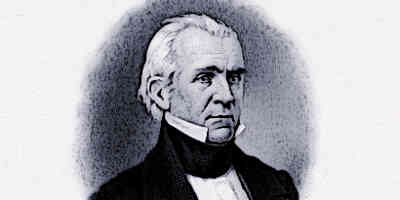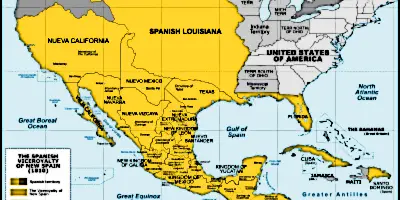Shadows of Destiny: Unraveling the Controversial Legacy of Manifest Destiny
The idea of Manifest Destiny was an important part of American History.

It was a belief that the United States had a divinely-ordained mission to spread democracy and capitalism across the entire continent.
This belief played a significant role in the territorial expansion of the United States in the 19th century, and it helped to shape the country into what it is today.
In this article, we’ll explore how Manifest Destiny helped to spread democracy and capitalism in America.
What Is Manifest Destiny?
Manifest Destiny was the 19th-century belief that the United States was destined to expand from “sea to shining sea.” The concept was based on the idea of American exceptionalism, with many in the US believing that it was God’s will for them to establish a new nation and spread their values across the continent.

The term was first coined by journalist John L. O’Sullivan in 1845 when he wrote of the United States’ mission to “overspread and to possess the whole of the continent which Providence has given us for the development of the great experiment of liberty and federated self-government entrusted to us.”

This expansion was seen to reach its peak under President James K. Polk’s administration, who famously declared that “the fulfilment of our manifest destiny to overspread the continent allotted by Providence for the free development of our yearly multiplying millions.”
Manifest Destiny played a large role in the formation of the United States as we know it today, as it led to the acquisition of new land through the Oregon Treaty and other policies driven by Polk’s nationalism.
The Role of Religion
Religion played an important role in helping to spread the concept of Manifest Destiny. During James K. Polk’s presidency, he championed the idea of extending American rule by invoking the imagery of the Biblical Promised Land.

Polk used a combination of his nationalism, religious fervour, and a desire for economic expansion as motivators for acquiring new territory. Through the Oregon Treaty of 1846, America was able to acquire a great deal of land from the British government, greatly expanding its borders.
Though some saw the treaty as unethical, Polk’s supporters argued that it was divinely ordained for America to gain more land and spread democracy across the continent.
This religious fervour inspired settlers to migrate westward, driven by the idea that it was their God-given mission to do so. As Manifest Destiny continued to expand America, religion served to encourage it rather than to oppose it.

The Role of Economics
Economics played an important role in James K. Polk’s Manifest Destiny agenda, It was central to his goal of expanding the United States’ borders and solidifying the nation’s presence on the continent.
The Oregon Treaty of 1846 was a particularly important step in this process, as it helped the United States to secure lands in the Pacific Northwest, expand its influence over the West, and establish its claim to a large portion of the continent.
This treaty was a cornerstone of Polk’s nationalism, which relied heavily on economic factors such as land acquisition and trade policy.

The Role of Politics
Throughout American history, politics have played an important role in the spread of Manifest Destiny. The concept of Manifest Destiny popularized by President James K. Polk’s nationalism and vision of America as a great power led to numerous acquisitions, including the Oregon Treaty and the Mexican-American War.
These expansions helped to create a strong sense of patriotism and further solidified the idea of Manifest Destiny. It also established a foundation for the growth of democratic values and capitalism within the United States.
Manifest Destiny | 5 Great Books
“The Contested West: A History of Manifest Destiny” by Robert V. Hine and John Mack Faragher
This book provides a comprehensive examination of Manifest Destiny, tracing its origins, development, and impact on American history. It explores the cultural, political, and economic factors that fueled the idea of westward expansion and analyzes its consequences for indigenous peoples and the nation as a whole.
“Bound for the Promised Land: African American Religion and the Great Migration” by Milton Sernett
This book explores the concept of Manifest Destiny from the perspective of African Americans during the Great Migration. It examines how the belief in a promised land influenced African American religious and social movements, and how they sought to assert their own visions of manifest destiny amidst racial inequalities and discrimination.
“American Nations: A History of the Eleven Rival Regional Cultures of North America” by Colin Woodard
While not solely focused on Manifest Destiny, this book offers a fascinating analysis of the cultural and regional divisions within the United States. It examines how different regional identities and historical experiences shaped Americans’ perspectives on expansionism, including the ideology of manifest destiny.
“How the West Was Lost: The Transformation of Kentucky from Daniel Boone to Henry Clay” by Stephen Aron
This book delves into the history of Kentucky and its role in the westward expansion of the United States. It explores the tension between the idealistic vision of manifest destiny and the practical challenges faced by settlers and Native American tribes in the region, shedding light on the complexities of American expansion.
“The Legacy of Conquest: The Unbroken Past of the American West” by Patricia Nelson Limerick
This book critically examines the history of the American West, challenging traditional narratives of manifest destiny and westward expansion. It explores the experiences of different groups involved in the westward movement, including indigenous peoples, Mexican Americans, and women, and offers a nuanced perspective on the ongoing consequences of Manifest Destiny in the region.
- Shadows of Destiny: Unraveling the Controversial Legacy of Manifest Destiny
- 18th Century America
- 19th Century America
- 20th Century America
- 21st Century America: Key Events & Trends
- About Us
- African American History in the United States
- American Celebrations and Holidays
- American Civil War
- American Flag History & Symbolism
- American History Timeline: Complete Chronological Guide
- American History: Overview & Key Events
- American Presidents: Complete List & Biographies
- American Religion and Cults
- American Revolution
- American Sports
- Anasazi Indians *Ancestral Puebloans
- Birth of the USA
- Contact
- Disclaimer
- Famous American Buildings
- History of TV, Film & Entertainment
- Privacy Policy
- Privacy Policy
- Shadows of Destiny: Unraveling the Controversial Legacy of Manifest Destiny
- SiteMap
- The Progressive Era
- Vietnam War
- World War 1 – WW1 1914
- World War 2 – WW2 – 1939
- Native America
- Colonial Period
- Founding Fathers of America